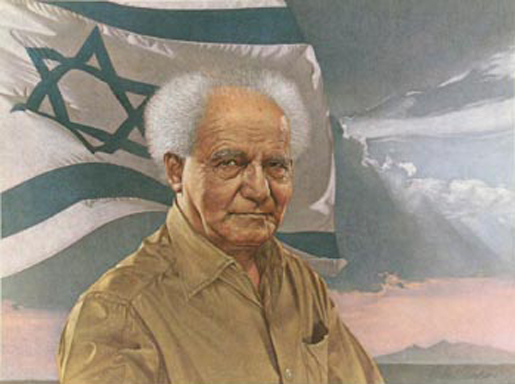“In 1954, when Ben-Gurion was prime minister, he traveled to the USA to meet with President (Dwight) Eisenhower to request his assistance and support in the early and difficult days of the State of Israel.
“John Foster Dulles, who was the then secretary of state, confronted Ben-Gurion and challenged him as follows:
“‘Tell me, Mr. Prime Minister — who do you and your state represent? Does it represent the Jews of Poland, perhaps Yemen, Romania, Morocco, Iraq, Russia or perhaps Brazil? After 2,000 years of exile, can you honestly speak about a single nation, a single culture? Can you speak about a single heritage or perhaps a single Jewish tradition?’”
“Ben-Gurion answered him as follows:
“300 years ago, there came to the New World a boat, and its name was the Mayflower. The Mayflower’s landing on Plymouth Rock was one of the great historical events in the history of England and in the history of America. But I would like to ask any Englishman sitting here on the commission, what day did the Mayflower leave port? What date was it? I’d like to ask the Americans: do they know what date the Mayflower left port in England? How many people were on the boat? Who were their leaders? What kind of food did they eat on the boat?
“More than 3300 years ago, long before the Mayflower, our people left Egypt, and every Jew in the world, wherever he is, knows what day they left. And he knows what food they ate. And we still eat that food every anniversary. And we know who our leader was. And we sit down and tell the story to our children and grandchildren in order to guarantee that it will never be forgotten. And we say our two slogans: ‘Now we may be enslaved, but next year, we’ll be a free people.’
“. . . Now we are behind the Soviet Union and their prison. Now, we’re in Germany where Hitler is destroying us. Now we’re scattered throughout the world, but next year, we’ll be in Jerusalem. There’ll come a day that we’ll come home to Zion, to the Land of Israel. That is the nature of the Jewish people.”[1]
That was Ben Gurion. He understood Passover. He got it. The only thing is, the task of the Passover seder is to try and pass down those values to the next generation. Tragically, Ben Gurion’s own descendants had no seder to make sure they got it.
[1] Translation from Ben Gurion’s autobiography
The Jewish people all have the same roots, the same history, and same humble beginnings.









